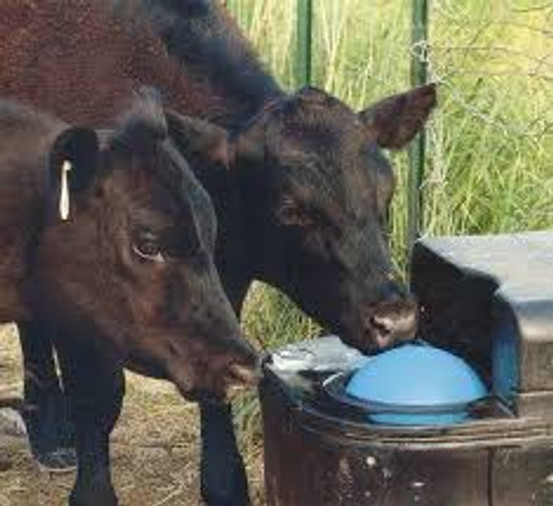Automated Solutions For Springtime Livestock Watering
Mar 18, 2024
To make sure your livestock are properly hydrated during the fluctuating weather springtime brings, considering automatic watering solutions on your farm can be beneficial in many ways.
In this blog we’ll help you determine whether or not an automatic watering system is the right choice for your livestock needs and the challenges farmers face during the spring season.
Understanding Springtime Watering Needs for Specific Livestock
Cows:
Require 8-12 gallons of water daily, increasing with warmer temperatures. Consistent hydration is critical for lactating cows, impacting milk production and overall health.
Poultry:
Sensitive to waterborne pathogens. Spring's fluctuating temperatures and increased rainfall can lead to water contamination or freezing. Regular monitoring and clean water are essential.
Swine:
Prone to dehydration in cold weather. Monitor weather forecasts and adjust water supply accordingly. Choose sturdy, well-positioned drinkers to prevent damage from playful behavior.
Types of Automated Watering Systems for Livestock
●Automatic Waterers: Maintain water cleanliness, reduce manual labor, and self-regulate water levels.
●Gravity-Fed Systems: Sustainable option using gravity to deliver water, eliminating reliance on electricity. Ideal for areas with frequent power outages.
●Float Valve Systems: Monitor water levels, ensuring proper hydration, particularly beneficial in hot, humid climates where animals drink more.
Benefits of Switching To Automated Watering Systems
Installing a reliable watering system to provide hydration to your livestock will help eliminate the risk of dehydration. Other benefits include:
●Reduced Labor - Automated watering systems help maintain the temperature and levels of your water, so when seasons change you won’t have to waste time worrying about your hydration supply.
●Energy Efficient - Automated watering systems, like gravity-fed models, is a step towards becoming a more-energy efficient farm and work even during power outages.
●Less Risk of Contamination - Automated systems help reduce harmful substances that can be accidentally found in your livestock’s water supply. This helps keep the animals and your staff clear from infections and sickness.
●Improved Water Quality - Automated systems include filters that help purify water as well as maintain the temperature of the water supply, decreasing the chances of your pipes freezing in the winter and early springtime.
Implementing Springtime Livestock Maintenance
Making the switch to automated watering systems helps eliminate the risk of dehydrated livestock, but there’s more ways to make sure you and your staff are ready for springtime on the farm:
●Seasonal Watering Schedule - Monitor the weather so that you can create a watering schedule based on the temperature changes. This will help eliminate water waste and help measure the appropriate amount of water intake for your livestock.
●Springtime Inspection - Each season you should check for leaks and cracks in your water systems to help prevent contamination.
●Spring Cleaning - After winter, you should sanitize and clean your watering systems, tanks and other supplies so that the risk of algae and unwanted debris buildup is eliminated.
Choosing the Right Watering System for Your Livestock
Investing in the right watering system this springtime is an investment in the health and productivity of your livestock. Shop our latest stock of waterers today! If you’re planning a new barn build or renovating an existing barn, our construction team can help design and build facilities with innovative automation solutions.


